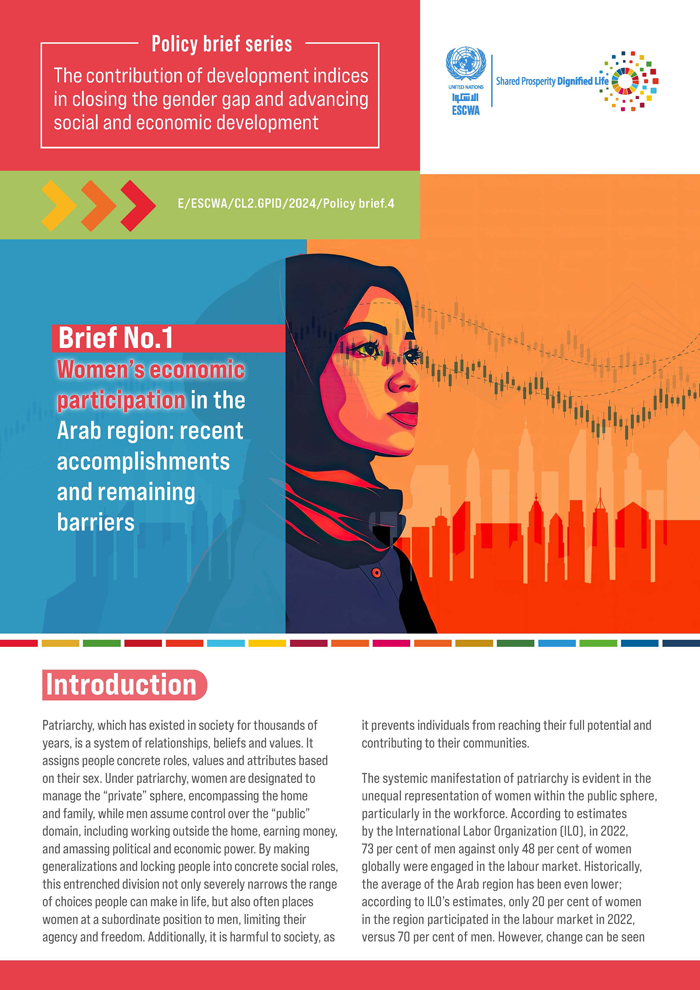ESCWA Publication: E/ESCWA/SD/2009/Technical Paper.2
Country: Republic of Iraq
Publication Type: Reports & studies
Cluster: Statistics, Information Society and Technology
Focus Area: Gender equality, Inclusive development, Statistics
Initiatives: Gender statistics
SDGs: Goal 5: Gender Equality
Keywords: Evaluation, Gender statistics, Iraq, Public information, National accounts, National income, Gender-based violence, Poverty, Women, Women in politics, Social indicators, Data collection, Women's health, Women and the environment
Evaluating gender statistics in Iraq
January 2009
This study is the result of bilateral cooperation between the Central Organization for Statistics and Information Technology (COSIT) at the Ministry of Planning and Development Cooperation in Iraq, and the Economic and Social Commission for Western Asia (ESCWA), in the area of developing the analysis of gender statistics in Iraq.
Gender statistics is an essential means to measure the status of women and evaluate their role in society, the economy, and the state, while determining the extent of their exploitation of the development process, and the extent of societal bias against them.
We hope that the study contributes to providing an analytical and calibration tool of gender statistics in Iraq, especially that it objectively portrayed the weaknesses and shortcomings of this statistical process.
Related content
Gender equality
, Inclusive development
, Statistics
,
This study is the result of bilateral cooperation between the Central Organization for Statistics and Information Technology (COSIT) at the Ministry of Planning and Development Cooperation in Iraq, and the Economic and Social Commission for Western Asia (ESCWA), in the area of developing the analysis of gender statistics in Iraq.
Gender statistics is an essential means to measure the status of women and evaluate their role in society, the economy, and the state, while determining the extent of their exploitation of the development process, and the extent of societal bias against them.
We hope that the study contributes to providing an analytical and calibration tool of gender statistics in Iraq, especially that it objectively portrayed the weaknesses and shortcomings of this statistical process.



